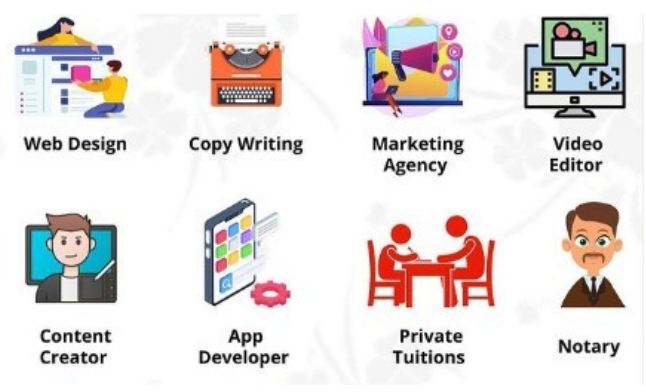How to Start a Business With 0 Money may sound like a daunting task, but with the right approach and mindset, it’s entirely possible to turn your entrepreneurial dreams into reality. In this leartice, we’ll explore practical strategies and actionable steps to help you kick start your business journey.

Introduction: How to Start a Business With 0 Money
When you think Launching a business without any capital or you say “How to Start a Business With 0 Money requires a blend of creativity, resourcefulness, and determination. While it may seem challenging, it’s important to remember that many successful entrepreneurs began their ventures with little to no funds. By leveraging available resources and tapping into your ingenuity, you can overcome financial barriers and embark on the path to entrepreneurship.
Identifying Your Passion and Skills
The first step in starting a business with zero money is to identify your passion and skills. Think about your passions, strong points, and areas of competence for a while. What are you truly passionate about? What skills do you possess that could be monetized? By pinpointing your unique talents, you can identify potential business ideas that align with your passions and strengths.

Leveraging Free Resources
In today’s digital age, a wealth of free resources is available at your fingertips. Take advantage of online tutorials, forums, and communities dedicated to entrepreneurship. Platforms like YouTube, Udemy, and Coursera offer a plethora of educational content on topics ranging from business development to marketing strategies. Engage with online communities and seek advice from experienced entrepreneurs who are willing to share their knowledge and insights on How to Start a Business With 0 Money.
Networking and Collaboration
Building a strong network is essential for any entrepreneur, especially when starting with limited funds. Reach out to friends, family members, and colleagues who may be able to offer support or guidance. Attend networking events, workshops, and industry conferences to connect with like-minded individuals and potential collaborators. Collaboration can help you pool resources, share expenses, and access new opportunities.
Bootstrapping Strategies
Bootstrapping involves finding creative ways to minimize costs and maximize resources. Seek to reduce wasteful spending and give priority to expenditures that are truly important. Consider starting small and scaling your business gradually as you generate revenue. Explore cost-effective alternatives for tools, software, and equipment. By adopting a frugal mindset and embracing resourcefulness, you can make the most of limited resources.
Embracing the Gig Economy
The gig economy offers a plethora of opportunities for aspiring entrepreneurs to generate income and gain valuable experience. Explore freelance platforms such as Upwork, Fiverr, and Freelancer to offer your skills and services to clients worldwide. Whether you’re a graphic designer, writer, programmer, or consultant, there’s a demand for freelance talent across various industries. Use freelancing as a stepping stone to fund your business endeavors and build a portfolio of work.
Creating a Minimal Viable Product (MVP)
Instead of aiming for perfection from the outset, focus on developing a minimal viable product (MVP) that addresses a specific need or pain point in the market. A MVP allows you to test your business idea with minimal investment and gather feedback from early adopters. Start with a basic prototype or service that demonstrates the core functionality of your product or solution. As you receive feedback and iterate on your offering, you can refine your product and attract potential investors or customers.
Utilizing Crowdfunding Platforms
Crowdfunding has emerged as a popular financing option for startups and small businesses looking to raise capital without traditional loans or investors. Platforms like Kickstarter, Indiegogo, and GoFundMe allow entrepreneurs to pitch their ideas to a global audience and solicit funding from individual backers. Whether you’re launching a new product, funding a creative project, or supporting a social cause, crowdfunding can provide the financial support needed to bring your vision to life.
Bartering and Trading Services
In the early stages of business development, consider leveraging the power of bartering and trading services to acquire goods or assistance without spending money. Identify individuals or businesses that offer products or services you need and propose a mutually beneficial exchange. Whether it’s trading your design services for website development or exchanging your marketing expertise for office space, bartering can help you conserve cash and build valuable relationships within your community.

Applying for Grants and Contests
Entrepreneurs are often surprised to discover the abundance of grants, competitions, and incubator programs available to support startups and small businesses. Do some research to identify funding opportunities and contests that align with your business goals and values. Many organizations, foundations, and government agencies offer grants and awards to support innovation, entrepreneurship, and social impact. Prepare a compelling grant proposal or pitch deck that highlights the unique aspects of your business and its potential for success.
Leveraging Social Media Marketing
Social media has completely changed how companies interact with their customers and promote their goods and services. Leverage platforms like Facebook, Instagram, Twitter, and LinkedIn to create a strong online presence and engage with potential customers. Share valuable content, interact with followers, and build relationships with your target audience. Utilize free marketing tools and analytics to track your progress and optimize your social media strategy over time.
Seeking Mentorship and Guidance
Navigating the entrepreneurial journey can be challenging, especially when starting from scratch. Seek mentorship and guidance from experienced entrepreneurs who can offer valuable insights, advice, and support. Look for mentors who have successfully launched businesses in your industry or niche and are willing to share their wisdom and expertise. Whether it’s through formal mentorship programs, networking events, or online communities, mentorship can provide invaluable guidance and encouragement along the way.
You may also like: How to Write CV for a Job: Conquering the Job Hunt for Landing Your D
You may also like: How to Message a Teacher on WhatsApp : 20 Genius Tips
Remaining Flexible and Adaptable
Flexibility and adaptability are essential traits for any entrepreneur, especially when facing uncertainty and challenges. Be prepared to pivot your business model, adjust your strategies, and embrace change as needed. Stay open-minded and willing to experiment with new ideas and approaches. By remaining flexible and adaptable, you can navigate obstacles, capitalize on opportunities, and ultimately, achieve success in your entrepreneurial endeavors.
Tracking Progress and Adjusting Goals
As you embark on your entrepreneurial journey, it’s important to set clear goals and track your progress along the way. Establish measurable milestones and key performance indicators (KPIs) to evaluate the success of your business initiatives. Regularly review your goals and metrics to identify areas for improvement and make necessary adjustments to your strategies. By staying focused and accountable, you can stay on track and continue moving closer to your vision of success.
Conclusion How to Start a Business With No Money
Starting a business with zero money or a answer for a question is undoubtedly challenging, but it’s not impossible. By leveraging your passion, creativity, and resourcefulness, you can overcome financial barriers and build a successful enterprise from the ground up. Embrace the journey with optimism, perseverance, and a willingness to learn from both successes and failures. Remember that entrepreneurship is a marathon, not a sprint, and success often comes to those who are willing to put in the hard work and dedication.
As already stated that starting a business with no capital requires determination, resourcefulness, and the ability to adapt your strategies as needed. With the right approach and unwavering dedication, you can turn your dream business into a reality.
Bonus: Business Ideas for Limited or no Capital:
Virtual Assistant: Offer administrative and organizational services to busy professionals or entrepreneurs.
Freelance Writer: Share your writing skills by creating content for various platforms.
Social Media Management: Help businesses manage their online presence and engage with their audience.
Graphic Design Services: Offer design solutions like logos, branding materials, and social media graphics.
Handmade Crafts: Sell unique handmade products like jewelry, home decor, or personalized gifts online.
Online Tutoring: Share your knowledge and expertise by tutoring students or adults virtually.
Content Creation & Editing: Assist businesses and individuals with content creation, editing, or proofreading tasks.
Choose a idea that aligns with your passions, skills, and market demand. Conduct thorough research and validate your idea before diving in. With dedication and these strategies, you can embark on your entrepreneurial journey and build a successful business from the ground.

